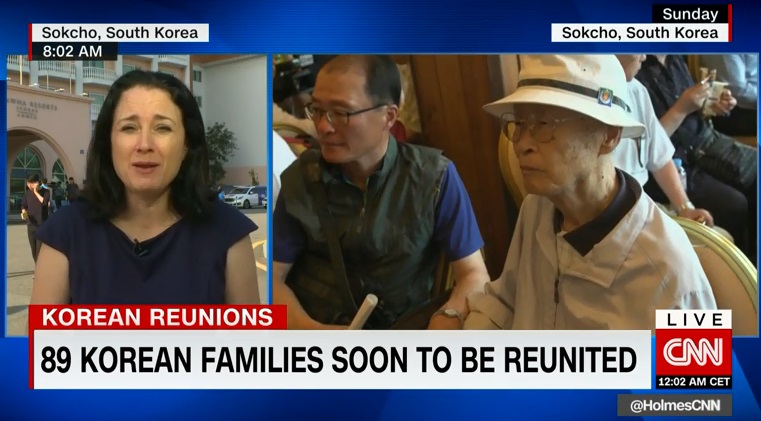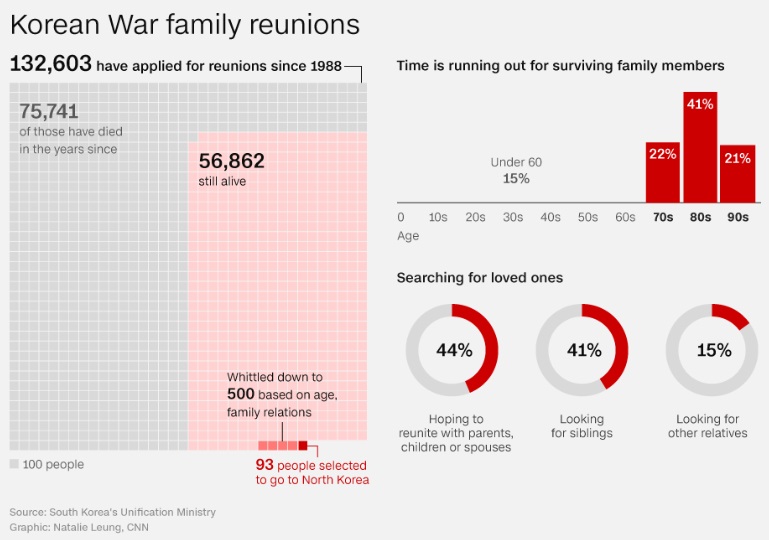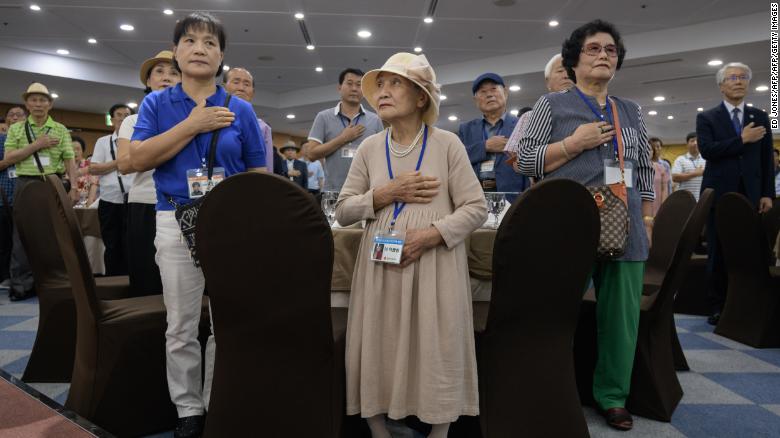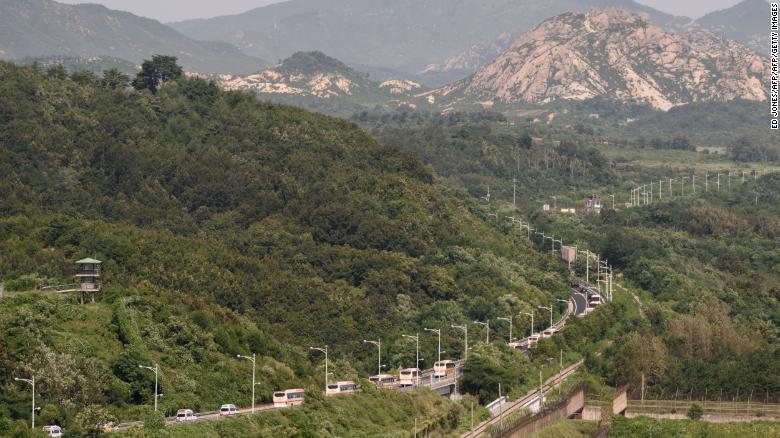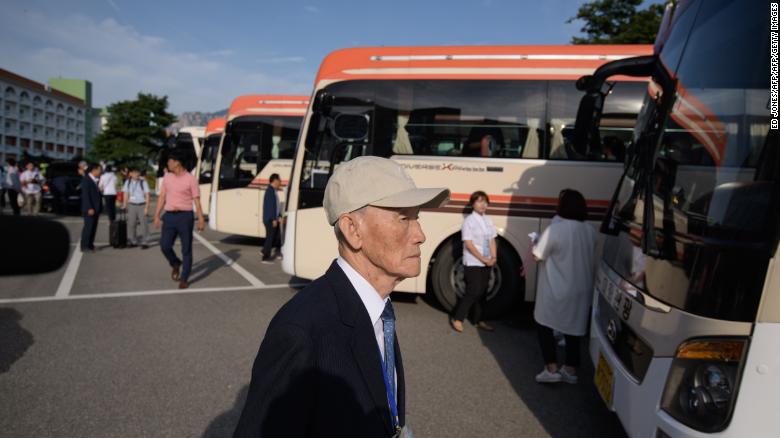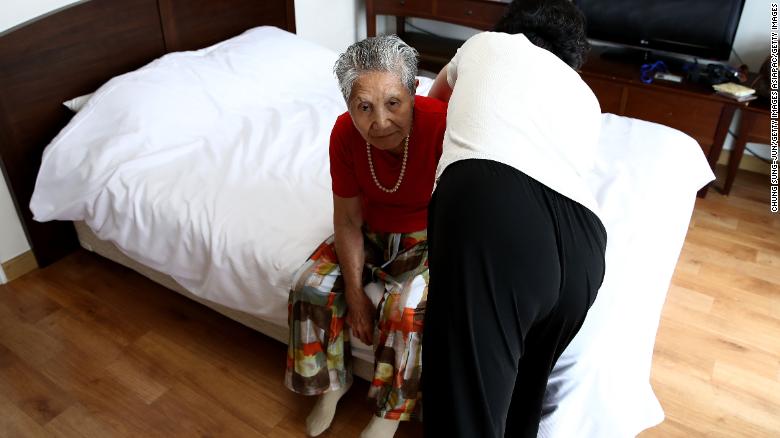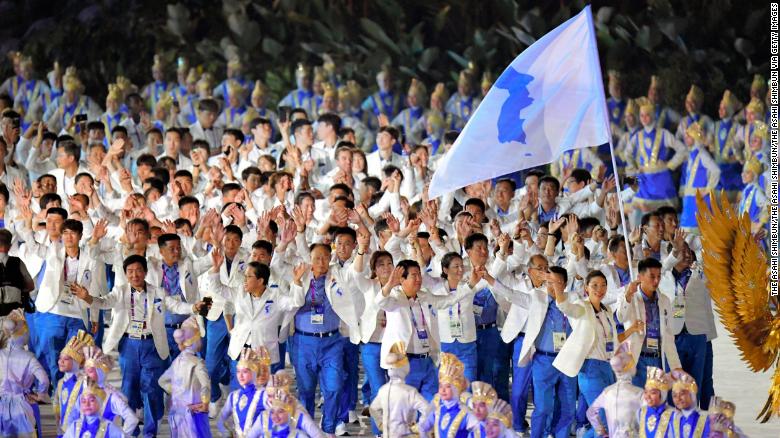In the hotel there was an air of excitement and tension as they prepared to meet husbands, wives, brothers, sisters and children who are now only vague memories, their faces blurred by time.
They then registered their names and were invited to take a professional family photo in a corner of the lobby. It was then framed for them so they could then take it to North Korea as a gift
Lee Keum-seom, who was
preparing to see her son for the first time since he was four years old, said she had prayed for him to have a long life so the pair -- now 92 and 72 respectively -- could reunite.
"(My family) in North Korea didn't live long so I prayed for my son's health," she said.
She felt nervous about meeting her now elderly son, after only knowing him as a small child, unsure about where to start catching up on a lifetime spent apart.
"What shall I ask?" she said. "Oh, I should ask him what his father told him about me. His father must have told him about how we got separated and where our house used to be. I should ask him about that."
Park Kyung-seo, president of the South Korean Red Cross, told CNN that while he was overjoyed to be assisting in family reunions, the small number of those taking part was a "human tragedy."
"I share fully with the disappointment of those who are not selected so I am trying with North Korean partners to try and find other solutions, huge numbers are waiting, the numbers are very much limited," he said.
"Imagine 73 years long without knowing whether their family members are still alive or passed away -- no news at all. The agony and anger, that's an unthinkable human tragedy."
Ahn Seung-chun was headed to North Korea to see family members she's never met. "I applied to see my older brother," he said. "But he passed so I'll never see him now."
"I'm going to see my nephew and my brother's wife," she added. On one hand, I'm sad that I won't see my brother. But on the other hand, I'm happy to meet the nephew. At least I will be meeting a fruit of my father."
Dokgo Ran was separated from his entire immediate family during the Korean War, and never expected to see them again.
"The Red Cross asked around for my family and helped me reunite. I'm grateful," he said.
Bittersweet process
In the decades since the Korean War, the Red Cross has reunited many families but thousands of others have missed out.
As family members age, each delay adds to fears that they'll no longer be around to finally meet with their long lost relatives. More than 75,000 applicants have already passed away since the reunion process began.
One protester attended Sunday's event to voice his elderly father's case for a reunion, after the man was unlucky this round.
"I don't know when he will die. He is beginning to show signs of dementia. Before he loses everything, he wants to go too," Kim Seong-jin said. "But all he can do is to watch through television each time and get hurt."
Amid all the joy and happy scenes on both sides of the border this week, this is the reality for most whose families remain split by the Korean War.
"My father is all alone here in the South. Can you imagine how much he misses his family?" Kim said. "He wants to hear the news of his hometown before he dies."
Legacy of war
The pain felt by the families split by the Korean War is one of the most visible legacies of
the conflict which, 68 years after it began, still hasn't technically ended.
An armistice agreement which paused fighting in 1953 never became a formal peace treaty, and small skirmishes have happened since on either side of the heavily fortified DMZ, even as North Korea has built up its nuclear armaments and the US has maintained a heavy military presence in the South.
Officially ending the war was a key element of the Panmunjom Declaration, and both North and South have said they are continuing to work towards that goal, even as negotiations between Pyongyang and Washington appear to have stalled.
North Korean state media
called on the US to agree to an official end to the war last week, saying it was a "preliminary and essential process to pave the ground for detente and permanent peace on the Korean Peninsula."
"The U.S. should implement phased and simultaneous measures, like the end-of-war declaration, to build mutual trust and make a breakthrough in the security of the world," state media Rodong Sinmun said in a commentary.
As well as the family reunions, Saturday saw the fulfillment of another commitment made by Moon and Kim, as a joint Korean team marched in the opening ceremony of the Asian Games in Jakarta, Indonesia.
That move came after a unified Korean team took part in the Winter Olympics in Pyeongchang, South Korea earlier this year, negotiations over which helped kick start a breakthrough in North-South relations and lead to the current detente on the Peninsula.




